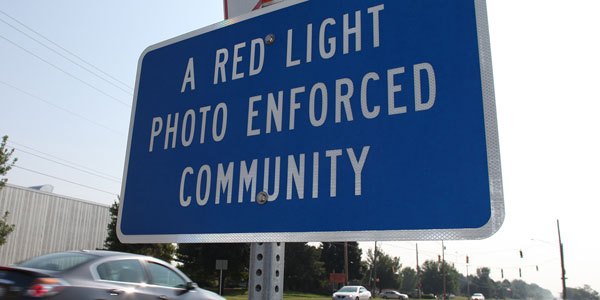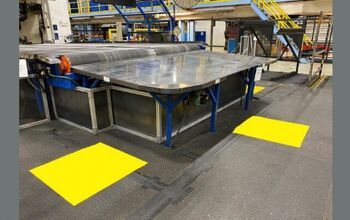California: Red Light Camera Class Action Lawsuit Hits Federal Court
A class action lawsuit against fifty-nine red light camera programs in the state of California will be heard before Judge William H. Alsup in the US District Court for the Northern District of California. Attorney Bruce L. Simon, who is suing Redflex Traffic Systems and American Traffic Solutions (ATS), moved Friday that the case return to the state court system. Simon argues that the contracts of Redflex and ATS with municipalities are illegal under California law.
Simon had initially filed the case on behalf of motorist S.D. Jadeja in the San Mateo County Superior Court, a venue that has already ruled that red light camera cost-neutrality contracts violate state law ( view decision). The class action suit is designed to go after the companies profiting from this type of illegal arrangement. ATS moved last month to have the case heard in federal court where judges have ruled more favorably toward automated ticketing machines. Simon wants the case back in the state courts.
“More than two-thirds of the putative class members are citizens of California, all of the alleged harm and wrongdoing occurred in California, the claims are based entirely on California law, and one of the three defendants [i.e., Redflex] is a citizen of California whose actions form a significant basis for the claims here and against whom plaintiff seeks significant relief,” Simon wrote in his motion to remand the case back to San Mateo.
Simon points out that Redflex, an Australian company, calls itself a California-based firm in 62 percent of the contracts it signed in the Golden State. The language variously refers to “Redflex Traffic Systems (California),” “Redflex Traffic Systems, Inc., a California corporation” or lists its principal place of business as Culver City, California. Under California law, class action cases designated as a “local controversy” are to be heard in state, not federal, court. Simon argues that every aspect of the case is local.
“All of the alleged conduct occurred in California and all harm and damages were suffered in California,” Simon wrote. “The cornerstone of this case is the existence of unlawful contracts, and the operation of automated traffic enforcement equipment under those contracts, in violation of both the California Vehicle Code and California Business and Professions Code.”
Under the cost neutrality clause, Redflex and ATS are compensated at a rate of 100 percent of the ticket revenue collected up to a certain amount. Beyond that cap, the city keeps all revenue. The California Vehicle Code specifically prohibits red light camera contractors from being compensated based on the amount of revenue collected. For that reason, Simon wants every ticket issued under a cost-neutrality contract refunded, an amount that could reach into the hundreds of millions of dollars. San Mateo County, for example, reported $13,802,808 worth of red light camera tickets last year alone.
[Courtesy: Thenewspaper.com]
More by The Newspaper
Latest Car Reviews
Read moreLatest Product Reviews
Read moreRecent Comments
- Jkross22 I'd imagine there's a booming business available for EV station repair.
- JLGOLDEN Enormous competition is working against any brand in the fight for "luxury" validation. It gets murky for Cadillac's image when Chevy, Buick, and GMC models keep moving up the luxury features (and price) scale. I think Cadillac needs more consistency with square, crisp designs...even at the expense of aerodynamics and optimized efficiency. Reintroduce names such as DeVille, Seville, El Dorado if you want to create a stir.
- ClipTheApex I don't understand all of the negativity from folks on this forum regarding Europeans. Having visited the EU multiple times across different countries, I find they are very much like us in North America-- not as different as politicians like to present them. They all aren't liberal "weenies." They are very much like you and me. Unless you've travelled there and engaged with them, it's easy to digest and repeat what we hear. I wish more Americans would travel abroad. When they return, they will have a different view of America. We are not as perfect or special as we like to believe. And no, many Europeans don't look up to America. Quite the opposite, actually.
- Dwford Let's face it, Cadillac is planning minimal investment in the current ICE products. Their plan is to muddle through until the transition to full EV is complete. The best you are going to get is one more generation of ICE vehicles built on the existing platforms. What should Cadillac do going forward? No more vehicles under $50k. No more compact vehicles. Rely on Buick for that. Many people here mention Genesis. Genesis doesn't sell a small sedan, and they don't sell a small crossover. They sell midsize and above. So should Cadillac.
- EBFlex Sorry BP. They aren’t any gaps


































Comments
Join the conversation
Nice. I hope he wins.
Aside from dreams of revenue, why do politicians OK the cameras? 1. They think we like the cameras! Last week a blog exposed Astroturf Lobbying in the red light cam Industry. (To read it, Google Rynski and Astroturf.) Astroturf Lobbying is when a PR firm creates an artificial grassroots movement via comments posted on news articles like this one. The politicians, sensing strong community support (they read these comment columns too), give the OK for cameras. 2. Politicians are immune to the tickets! In California 1.5 million privately-owned cars have plate numbers protected from easy look up, effectively invisible to agencies trying to process red light camera violations. Such "protected plate" lists exist in other states. (In CA the list includes local politicians, bureaucrats, retired cops, other govt. employees, and their families and ADULT children!) Everyone should check to see who and how many are 'protected' in their state.